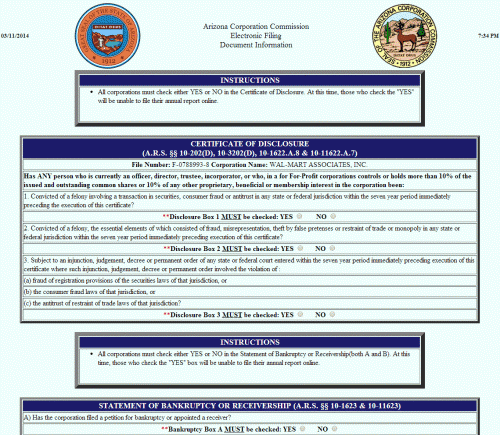I am on the road and really don't have much time to write, but I feel compelled to give a few thoughts on the whole Amherst College situation that has blown up in social media over the last 24 hours.
Yesterday (Thursday) my son called me to tell me about a sit-in he found himself a part of in the library (I must admit to being vaguely happy he was actually in the library). He is not like me, and tends to observe these kinds of thing with an amazing dispassion. He is fascinated by people with extreme views and loves to observe them. For example, he always enjoys stopping and listening to the religious zealots preaching outside of Comicon when we visit. It is almost an anthropological approach.
So I will say up front that most of the views here are mine, not his, since he reported most of the events as merely something interesting that happened to him. I also say this because I don't want anyone on campus getting the idea they need to start some sort of totalitarian campaign against him, a fear that you will see is well-justified below.
His main observation of the original sit-in was that people seemed to have enormously negative experiences as persons of color on campus and he found that surprising. He reported that people talked about their life at Amherst as, say, a black female, being a living hell, one that my son found hard to jibe with the general intolerance in the classroom for even an ambiguously racist comment.
I certainly understand that people of color still face a headwind of at least minor racist B*llshit. I am reminded of one Amherst student telling me about having guests at a southern country club function trying to order drinks from him because he was black.
But when I grew up in the 60's in Texas racism meant that kids I knew actually went out gay-bashing in Montrose (the traditionally gay district in Houston) and the new black kid in an all-white school got beaten up every day (I will confess I had mixed fealings about both of these, since I was otherwise the bullying target of choice in the class and sometimes appreciated the split focus). Against this backdrop, it is hard for me to consider a school that gives black applicants a substantial break on SAT scores for entrance and whose President turned around from a trip to London to address concerns of ethnic minorities to be institutionally racist.
Besides, it seems like kind of an insult to your parents and grandparents to call an Anglo wearing a sombrero to a party "violence" when those previous generations faced the real thing. It's a bit like telling your granddad who lived through the Bataan death march that the University starved you by letting you out of class 30 minutes late for lunch.
One thing my son reported was that there were a lot of threats made against white students who somehow were not present in the library at the sit-in, as if non-presence at an unannounced event was somehow in and of itself racist. The general tone of the discussion was very authoritarian -- everyone should be forced to be here, everyone should be forced to take diversity courses, etc.
The other thing that came out of the meeting was substantial vitriol aimed at a sign that appeared in a dorm window. The media has not really been very specific about the sign, but it read "Free Speech 1776-2015". All things being considered, this was a pretty tame commentary, especially since the protesters themselves kept talking about the concepts of free speech being dated. But none-the-less, the student who posted it was being treated like the second coming of Adolf Hitler.
So today, some of the students confronted the school President Biddy Martin (who had turned around from a trip to London to meet them) and basically served her with an ultimatum, demanding that on the spot she sign a list of demands listed here. The demands are alternately non-nonsensical and and totalitarian. A few highlights:
- The document essentially demands that Ms. Martin and the Board of Trustees apologize for all manner of past sins that have nothing to do with their own actions, or those of the College, or even those of the alumni of the College.
"President Martin must issue a statement of apology to students, alumni and former students, faculty, administration and staff who have been victims of several injustices including but not limited to our institutional legacy of white supremacy, colonialism, anti-black racism, anti-Latinx racism, anti-Native American racism, anti-Native/ indigenous racism, anti-Asian racism, anti-Middle Eastern racism, heterosexism, cis-sexism, xenophobia, anti-Semitism, ableism, mental health stigma, and classism."
This is a sort of secular original sin, and is common among these SJW movement. The error of racism is that it puts on people an original sin based on the circumstances of their birth which they cannot erase through any sort of good behavior. This movement shares the same error, putting on whites and straights and rich people and males and the Amherst community and a variety of other groups the same sort of original sin.
I will add one irony, that Ms. Martin is probably a lot closer in her beliefs to the protesters than I am. I do not know her politics, but it is impossible to imagine she would be made President of Amherst College without being vetted in advance as reliably Liberal/Progressive. This is not Left vs. Right, but Robespierre turning on his fellow revolutionaries.
- I find this bit scary: "Amherst College Police Department must issue a statement of protection and defense from any form of violence, threats, or retaliation of any kind resulting from this movement." I will bet you a million dollars that a) you are thinking this means physical violence or disciplinary action but b) the authors mean "retaliation" to include verbal criticism of any sort, such that this very article would be considered "retaliation".
- "President Martin must issue a statement of apology to faculty, staff and administrators of color as well as their allies, neither of whom were provided a safe space for them to thrive while at Amherst College." I am willing to believe Amherst is not perfect and that there are *ssholes that make life difficult at times for people of color there, but it would be hard to find another place on the entire planet that is a safer and more welcoming environment for ethnic minorities that Amherst College. What are they going to do in the real world?
- This paragraph has gotten a lot of attention, as it should:
5. President Martin must issue a statement to the Amherst College community at large that states we do not tolerate the actions of student(s) who posted the “All Lives Matter†posters, and the “Free Speech†posters that stated that “in memoriam of the true victim of the Missouri Protests: Free Speech.†Also let the student body know that it was racially insensitive to the students of color on our college campus and beyond who are victim to racial harassment and death threats; alert them that Student Affairs may require them to go through the Disciplinary Process if a formal complaint is filed, and that they will be required to attend extensive training for racial and cultural competency.
The author of the fee speech poster needs to be punished because, why? Because he or she was obviously dead-on correct in their analysis of the movement's goals? Essentially they are saying, "yes you are right, we want to destroy free speech but you are not allowed to tell people that is what we are doing."
- I have no problem with ditching "Lord Jeffs" as a mascot. First, it is a terrible mascot name. Second, while ironically Amherst would have been considered a pretty enlightened and tolerant master by the colonists of the time, he did suggest the whole TB blankets to the Native Americans thing and since that is the only story anyone knows any more about him, its really a bad association. I suggest "Redskins" instead (OK, just kidding. I am not a Redskin name supporter.) The "moose" (Meese?) suggestion is awful. I would support a Dartmouth style solution of calling them the "Purple" before I could climb on board with "moose". Or maybe in the spirit of the times they can be the "mauve".As an aside, Amherst College has a nice little art museum (which owes most of its existance to Standard Oil money, which I am sure the faculty and students try to ignore). There is a really interesting portrait of Lindberg there I have never seen before. Anyway, all the pictures have a short descriptor about the work as one would expect. EXCEPT the one for the painting of Lord Amherst himself, which has a descriptor about 20 inches long because about 18 inches have been tacked on up front making sure everyone understands what a horrible idea the TB blankets were. It reminds me of the Enola Gay in the Smithsonian, which I am told is still without any kind of label or plaque because no one could agree on how much vitriol needed to be spilled in the description about how bad dropping atomic bombs on civilians is. Which gives me the idea that every portrait in a public space of FDR needs to begin by talking about the unconscionable internship of Japanese and every portrait of Wilson needs to start with what an awful racist he was. Time to rename the Wilson school at Princeton!



